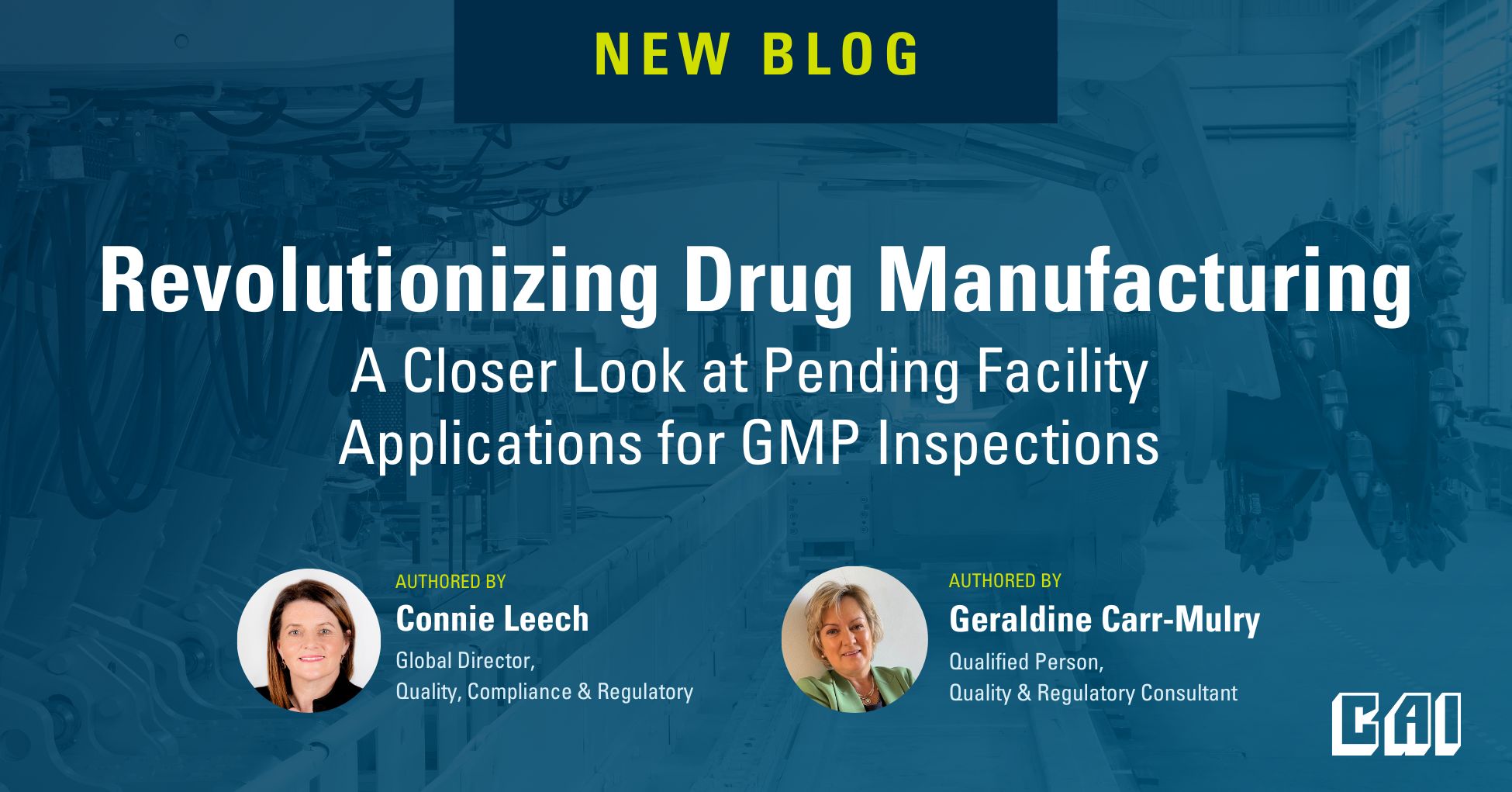
Revolutionizing Drug Manufacturing: A closer look at pending Facility Applications for GMP Inspections
COVID-19 pandemic exposed vulnerabilities and challenges in pharmaceutical supply chains, leading to drug shortages and disruptions. Whilst certain aspects of the pandemic have gone away, drug shortages have persisted on a global scale. The demand for flexibility in the supply chain remains imperative, However, many drug manufacturers are still reluctant to make significant changes to their process or facilities due to the regulatory hurdles, differing expectations, and implementation timelines that global regulatory changes may impose.
Fortunately, regulators have recognized the urgency of enhancing and streamlining supply chains. Global regulators have joined forces to address challenges with drug availability; launching some promising initiatives which are currently been piloted.
The International Coalition of Medicines Regulatory Authorities (ICMRA) was established in 2012 to strengthen international collaboration between the various regulatory agencies by building the processes and information infrastructure needed to support global development, manufacture, distribution, and supply of pharmaceutical medicinal products. The extraordinary challenges posed by COVID-19 further accelerated efforts to implement adaptable approaches, allowing manufacturers to swiftly increase production capacity and prevent or mitigate shortages without compromising patient safety or product quality.
In July 2021, an ICMRA workshop identified opportunities for enhancing global regulatory responses by harmonizing the Chemistry, Manufacturing, and Controls (CMC) assessment and inspection processes among various agencies. To advance this endeavor, a call was made to the industry in 2022 to gauge interest in participating in a collaborative assessment and inspection pilot program.
To date two inspection proposals have been approved by ICMRA under this pilot program. One pilot focuses on collaborative assessments for protocols that facilitate streamlined CMC post-approval changes while the other pilot deals with collaborative hybrid inspections.
The collaborative hybrid inspection pilot aimed to conduct a collaborative facility assessment using a combination of on-site inspection and remote assessment tools. In this “hybrid” inspection, inspectors from one regulatory authority are physically present on-site, while regulators from other countries participate remotely. Through these pilot programs, the most effective virtual platforms and information technologies (e.g., video) to facilitate simultaneous on-site inspections and remote assessments will be identified. Protocols and report templates for conducting hybrid inspections will be developed and shared with other ICMRA regions.
To date, one pilot hybrid inspection has been conducted. FDA, as the lead inspectorate, with the participation of observers from PMDA, Swiss Medic, MHRA, MoH Israel, EMA and HPRA has completed the first collaborative assessment of a Drug Product Manufacturing site in September 2023. A second inspection of a Drug substance and Analytical test site is scheduled for November 2023 with Swiss Medic taking the lead inspectorate role.
Additionally, the Collaborative Hybrid Inspection Pilot (CHIP) working group have posted a document on “Expectations for ICMRA CHIP Participants “ (Aug 31, 2023) which details the benefits to participation, the pre-inspection activities (including the staffing, IT tools, and internet connection requirements), the schedule for inspection (opening meeting, tour, document review, interviews, and closing meeting), and post -inspection activities to support the activity .
Information on the “Overall plan for Hybrid Inspections” is also published as well as anticipated timelines for pre-inspection, inspection, and post-inspection activities.
The potential of this approach for the future looks promising, and manufacturers will welcome the opportunity to have changes evaluated and approved through a single inspection process rather than multiple ones. However, it is still in the initial stages, albeit with exciting progress.
Significant effort is still required to align regulatory processes, requirements, expectations, and knowledge to enable collaboration and understanding between different Regulatory Authorities. Feedback on the process is anticipated in the first half of 2024 with recommendations on how to further improve to come with the findings.
Such collaborative endeavors are welcomed by industry to ensure that quality systems and products are at a standard, ensuring a consistent and reliable supply of critical medicines for patients in need.
Tags: FDA, Hybrid Inspections, ICMRA, Hybrid Inspections Pilot, Drug Manufacturing, Global Regulation, Pharmaceutical Supply Chain


